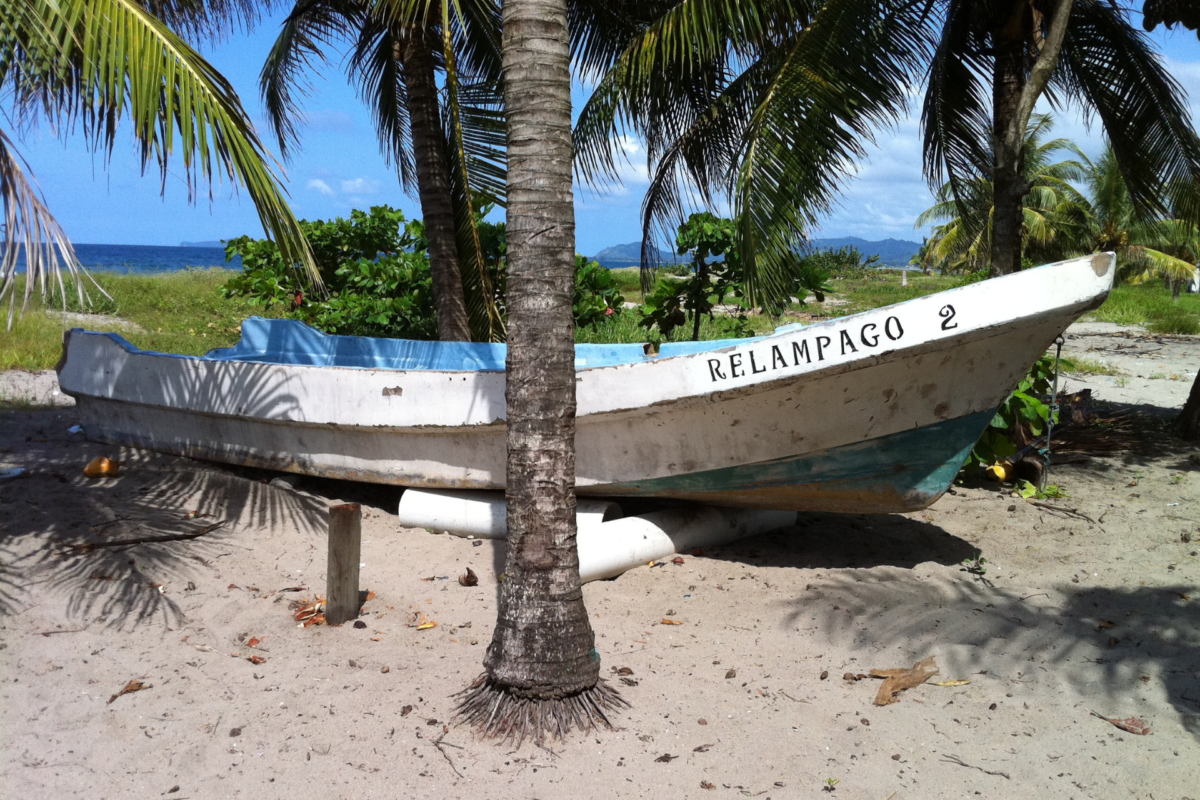
Words by Ibis Colindres and Yolanda Muñoz
People with disabilities are uniquely affected by the impacts of climate change and environmental degradation. And yet, they are routinely left out of efforts to protect rights to a clean and healthy environment. Global Greengrants Fund, in collaboration with the Ford Foundation, is seeding initiatives that recognize the rights of persons with disabilities as they tackle our world’s most pressing environmental issues.
For Indigenous Peoples living along the Atlantic coast of Honduras and Nicaragua, fishing for lobsters, sea cucumbers, and shells is the main source of income. The majority of men in the Moskitia region choose fishing over the only other potential career option, working with the local drug cartels.
Life isn’t easy for these Miskito divers. Even though most of their catch is sold in the United States for a pretty penny, the divers live in poverty. Moreover, there are significant risks to their health, and even their lives.
Because diving is the only viable source of income in the area, combined with the fact that the divers’ income is based on how many fish they catch, the oceans in the area have rapidly become overfished.
On top of the environmental impacts, the lack of fish has made it harder for the divers to catch enough to support their families, leading the men to dive more times per day than recommended for their health, each time diving deeper into the sea to find lobsters. To make matters worse, the divers frequently use worn and defective diving equipment that forces them to reach surface level more quickly than the recommended speed.
For all these reasons, many of the divers are affected by Decompression Syndrome, which can cause irreversible neurological damage, significantly impacting their mobility and speech. Many Miskito divers have died as a result of this condition.
In 1999, the divers with disabilities formed the Miskito Association of Disabled Divers of Honduras (AMHBLI), led by divers who live with a disability and family members of divers who lost their lives. Since 2004, the organization has helped the divers and their families appeal the government for better recognition of their rights. Global Greengrants Fund and Fondo Tierra Viva, our sister organization in Central America, have awarded funds to AMHBLI to support their efforts.
Some of the efforts to help the divers include:
- Legal Action: Fondo Tierra Viva has joined forces with the Center for Justice and International Law, which took the case of the disabled Miskito divers to the Inter-American Human Rights Commission, the Office of the High Commissioner of Human Rights in Honduras, and Handicap International.
Fondo Tierra Viva has also provided funding to the Association of Miskito Women and the Organization of Miskito Elderly to pursue justice for the divers and their families. Thanks to their efforts, the International Human Rights Commission acknowledged that the Honduran government was violating the basic rights of labor safety, and was ignoring existing legislation to compensate those who had an accident as a result of their fishing activities.
- Improving quality of life: Fondo Tierra Viva has helped the widows, wives, and daughters of disabled divers generate income to support their families and take care of those who are disabled. In 2012, the Honduran Government launched a proposal to support the divers and their families, though the next steps and action plan have been difficult to agree upon and implement. As part of this effort, Fondo Tierra Viva has carried out research to offer an overview of the situation that would serve as a basis to define a multi-year plan, which includes four programs to support the disabled divers.
- Building a movement: Nicaraguan divers share the same hardships, and Fondo Tierra Viva has promoted the exchange of experiences between fishermen in Nicaragua and Honduras.
For decades, Miskito divers and their families have fought for justice for people with disabilities in their community, as well as the health of their ocean. We at Global Greengrants Fund are proud to support these frontline communities, and we are eager to expand our support of those with disabilities and their efforts to promote environmental justice across the globe.
